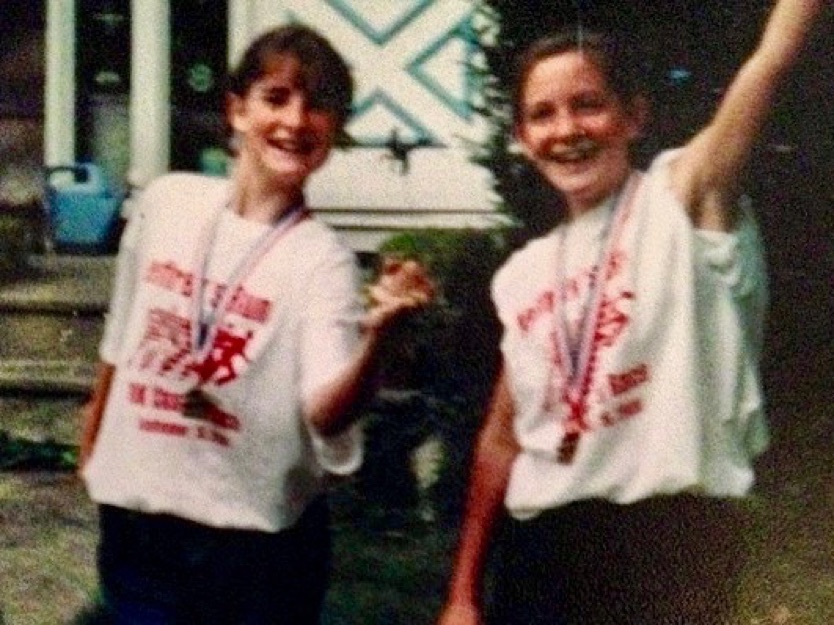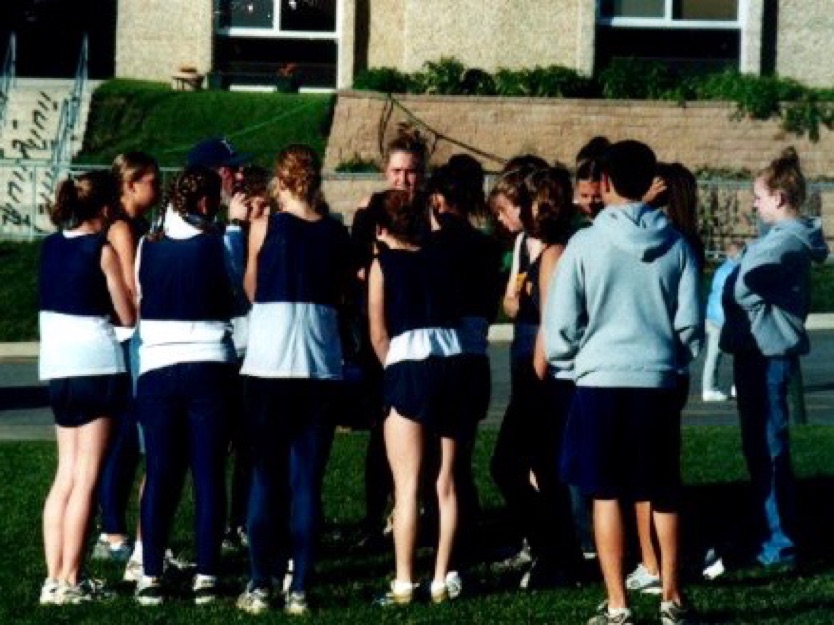One afternoon in my junior year of high school, I was running around the school campus with my cross-country team when I found a nickel. My enthusiasm was perhaps outsized for the occasion. For whatever reason, I was very pleased. Then, 10 minutes later, I found another nickel. I did not stifle my enthusiasm here either, but I also did not think anything more about nickels after that. I generally like nickels just as much as the next person—no more, no less. Had the nickel incident ended here, I likely would not remember this day at all.
The following day, my teammates and I began our warm-up, and we found a nickel. Then we found a second nickel. Everywhere we went, there were nickels. As it turns out, my teammates were so appreciative of my enthusiasm the day prior that they arrived to school early and planted nickels around the campus—dozens of them. It was the sweetest gesture. I went nickel-hunting with my team, and it remains one of my favorite running memories.
I loved that team. They were some of my best friends, and many of them still are. We laughed a lot, empathized with each other through good races and bad races, and edified one another as we trained shoulder-to-shoulder. But, like many teams, it also had its problems. By the time senior year rolled around, the team was more divisive and internally competitive. Our big group runs would often splinter into smaller groups that were riddled with gossip. I observed these things and mourned the cultural changes. I also did nothing to fix them. I was complicit in the gossip, and I did not speak up when it happened.
I Am
There is an anecdote often told of G.K. Chesterton, an English author and philosopher. Around 1910, the London Times requested essays responding to the prompt, “What is wrong with the world (1)?” Chesterton’s response was brief:
“Dear Sirs, I am.
Yours sincerely, G.K. Chesterton”
I am what is wrong with the world. The idea is that, it is usually easy to identify the problems around us (as I did on my cross-country team) but oftentimes we are part of the problem, too (as I certainly was). I think this is a helpful reminder. In general, when I am upset with whatever is occurring around me, I should recognize my agency in the situation and entertain the possibility that I am part of the problem.
I usually am.
Mediocrity is Contextual
In a recent article by Eric Schwitzgebel, he argues that “most people aim to be about as morally good as their peers—not especially better, not especially worse (2).” We calibrate to the behaviors of the people in our context. This is great when our context is edifying, kind, and productive. It is not so great when our context is riddled with back-biting and hostility. In the first case, my norm-compliant actions sharpen me and encourage me to be better. In the second case, I am likely to morally regress, or to loosen my standards of action. This describes my complicity in the eroding context of my high-school running team. I noticed how others were acting and recalibrated to the new (lower) standards.
I have been thinking a lot about Switzgebel’s article lately. In particular, I have been assessing my role in current and previous contexts, and evaluating the extent to which I have adjusted my standards to match my peers. I have also been thinking about where to go from here, knowing that we are collectively disposed toward moral mediocrity.
So far, I have two ideas:
Choose Your Friends Well
If mediocrity is contextual, try to spend time with people you want to be like. This includes teachers, teams, and friends, to the extent that you can select these people. Schwitzgebel writes that littering and lying are contagious. We are also more or less generous based on the giving actions of the people in our contexts (3). If I am susceptible to being shaped by my peers, I should make a concerted effort to choose them well. Philosopher Christian Miller writes that we “should actively seek out those situations that are going to inspire us to act well, while actively avoiding those situations that are fraught with temptations and other pitfalls (4).” The hope is that spending time in a good context will encourage us to develop the right sorts of habits, to shape our characters in positive ways.
Be the Moral Buoy
The second idea is Chesterton-inspired. We don’t just have to succumb to the context we find ourselves in, becoming complicit when things are bad. Rather, we can choose to be the moral buoy in that context, playing a role in raising the culture. This is not always easy, but it is important. Otherwise, we make ourselves vulnerable and are complicit in the problems.
If I could go back in time to high school and do it all again (Please, God, no… My braces were unseemly…), I would have changed myself, in order to change the culture. I could have redirected conversations to stop the gossiping or been more confident in encouraging peers, rather than feeding into the competitive divisiveness. It’s not like I failed to recognize the problems. I just failed to do anything about them.
Final Words
Running is a community, and it is a great one. But it has its problems, too. Some of these problems are as insidious as cheating or a lack of trail stewardship, and others are a more mundane sort—like gossiping in running clubs or being critical of competitors.
I am realizing more and more that the problems I identify in the community are my problems, too. To the extent that I can, I want to spend time with running buddies who are the sorts of people I want to be like. And, whenever I am upset with the culture around me, I should also recognize my agency in the situation and entertain the possibility that I am part of the problem.
I usually am.
Call for Comments (from Meghan)
- Is it easier for you to identify a community’s problems in others rather than in yourself?
- How can you be a moral buoy for your community? In what ways can you “raise the culture,” as Sabrina writes?
References
- Belmonte, Defiant Joy: The Remarkable Life and Impact of G.K. Chesterton (Nashville: Thomas Nelson, 2011), 288.
- Schwitzgebel. “Aiming for Moral Mediocrity.” Res Philosophica 96, no. 3 (2019): 347-368, 347.
- Ibid.
- Miller. The Character Gap (New York: Oxford University Press, 2018), 204.


